Above: The School Committee (Alyson Powell, Matt Plain, Lori McEwen, Meyer, Carolyn Mark, Anne Musella, Gene Quinn and Jeff Dronzek) and Alexis Meyer after the vote naming her superintendent last February.
Chairwoman Carolyn Mark and members Jeff Dronzek and Matt Plain recall challenges, achievements.
Perhaps particularly during this COVID year, 2012 seems like a long time ago. That was the year Carolyn Mark was first elected to the School Committee. Eight years later, Mark has stepped down, along with Matt Plain, who’s served for nearly five years, and Jeff Dronzek, who has served for four.
They all came to the School Committee in different years and with different backgrounds. And all three faces the challenges of the position – financial (never enough money), time (a lot of meetings), political (unpopular decisions), and then the big one: pandemic (no real explanation needed here).
We interviewed each of them to get their impressions of their time in office.
For Carolyn Mark, she spent her first two years learning. Then, after Greene and Jack Sommer were swept out of office by a wave of voters looking for increased public input and implementation of things like all day kindergarten and later school start for older students, Mark was elected to serve as chair. It’s a job she held for the next six years.
Early on in her tenure, the committee was working on building a strategic plan but the effort had stalled by the time she took over as chairwoman in 2014.
“I committed to completing it within six months,” Mark recalled in a recent interview. They did.
“While we didn’t accomplish everything on that plan, it shaped my tenure on the committee.”
Mark said she was proud of the way the committee under her leadership took on the strategic planning process. “It gave me the opportunity to show what collaboration can be like. The process we employed really brought people together.”
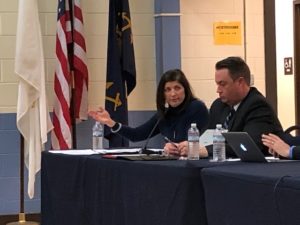
Carolyn Mark during a joint Town Council-School Committee meeting.
The areas of health and wellness were particularly important to Mark and she noted the implementation of the mental health first aid training that more than half the district faculty and staff have undertaken as well as the employee assistance program (EAP) initiated while she was chair. EAPs offer resources for staff members struggling with depression, substance abuse or just going through a hard time.
Those actions were consistent with what they’d laid out in the strategic plan, as was changing the school start times for older students, though that was much harder to accomplish.
“It was really challenging,” Mark said. Many parents didn’t want it, especially those who had children involved in sports. “But it was a science-based decision and there was a compromise.”
Mark said she’d joined the School Committee concerned about district communications. “I came into the SC concerned about district communications. I was a huge advocate for figuring out how to do that better.
“Increasing communications with families was really important to me,” she said. “We’ve seen a whole sea change in how the district communicates,” everything from increased email communication to the superintendent’s weekly “field memo.”
“I think the school district has gone above and beyond,” Mark said.
The biggest challenge for Mark came between 2016 and 2018, when the Town Council those years was making what School Committee members considered impossible requests in terms of budget cutting.
“When I came to fully understand what the agenda was of that TC … and the damage it could inflict, that was definitely a wakeup call,” she said, understanding she needed to play defense. “It wasn’t the work that I wanted to be doing but it was the work I had to do.”
Mark said the support of the community was never more vital then during those years.
Her only regret? Not hiring someone to oversee curriculum earlier – it didn’t happen until 2018, when the School Committee hired Alexis Meyer.
“We have a lot of catchup to do and we can only do a certain amount in a short amount of time,” she said. “It’s going to narrow the achievement gap. It’s not about having a parallel education system. It’s about having a robust curriculum … that’s accessible to all students. Unless you can do that, you’re never going to close that achievement gap.”
Meyer only served as “director of teaching and learning” for fewer than two years before she was chosen by the School Committee to serve as the district’s next superintendent (replacing Victor Mercurio, who held the post for 10 years).
Hiring Meyer as superintendent (one year ago) is Mark’s proudest accomplishment. She said she even woke up in the middle of the night in a cold sweat, thinking for a moment they’d hired someone else.
“She was the right person at this moment in time,” said Mark. “Empathetic but decisive and tough, she has so much grit and determination. She is a walking example of a growth mindset but also humble.”
Meyer has needed every bit of grit and determination – less than three months after taking over the job, COVID-19 closed down the public schools. Today they are open, under strict state guidelines.
It remains a challenging time, but, said Mark, “I do have a sense of leaving the community in good hands.”
She is moving to Providence this month but said she remains a resource to School Committee members and will be following events in East Greenwich for years to come.
Matt Plain was elected in a special election in January 2016 with perhaps more understanding of what he was getting into than most people elected to school boards. That’s because in his professional life as a lawyer, he has represented a lot of schools.
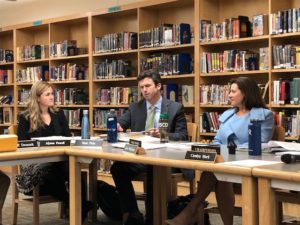
Matt Plain at a School Committee meeting April 2019, with Alyson Powell (left) and Lori McEwen.
“I had a good understanding of the obligations,” he said. “Prior to my service, my role was as a consultant … you render your opinion. You analyze the risks of preceding down potential paths. But then, as a member of a governing body, then you make a decision and you live with it.”
The issue most identified with Plain during his time on the committee – field trip funding – presented itself early on. One of the high school teachers appeared before the School Committee for permission to take some students on a trip to Europe. This was a routine type of appearance – the School Committee usually asked some cursory questions and then voted to approve the trip, which would be paid for by the students. The teacher took pains to point out how the trip supported the curriculum.
Plain voted no, the only member to do so, noting any trip that furthers learning that was not available to all students (the cost per student was well over $1,000) was not legal under state law, which requires that public education be free and available to all.
He continued to vote against costly field trips, eventually winning over other members of the School Committee. They put the question to the state Dept. of Education: can parents be charged for public school field trips? After some delay, then-Commissioner Ken Wagner issued an answer – schools could not charge for field trips. It was a huge decision for state public schools, as it affected everything from the $5 to cover the bus ride to the zoo to the $1,600 for a four-day trip to Washington D.C.
Many EG parents were not happy, worried their children would lose out on those opportunities. The School Committee set about setting up new ways to support school trips (all of which has become temporarily moot during this pandemic). But members got flak for pushing on the issue, none more than Plain, who heard from people on ball fields, at the market, with his young children.
“Did it bother me? Yes. I’m human,” he said.
“I didn’t come into the School Committee role with a focus on field trips but I absolutely came into public education with a laser-beam focus on academic equity.”
He noted the equity issue wasn’t confined to field trips – parents are asked to pay for a variety of “school” experiences, such as for musical instruments, sports team extras, paying for special tests, etc.
“I have complete trust in the four remaining members of the committee to see that through,” Plain said. He’s hopeful, too, about the three new members. “That was part of the reason I felt comfortable with cycling off. If you’re not affording all of the students in your district real access to all the programs, then lauding other programs is nice but that’s missing step one.”
Plain did say some of the most meaningful feedback he got was from people who’d been through the schools whose parents didn’t have money for those school extras.
“They said something like, it’s not that great if you’re not one of the fortunate kids.”
Plain remains very grateful for the people who work for the district.
“Getting the view of just how much these folks do to ensure that our children get high-quality education makes me so grateful to be here,” he said.
“Overall, I’m proud of the partnerships we’ve had with the faculty, the staff, the administration, the parents, to remain flexible, to remain open so that we can continue to fulfill our vast obligations to each and every student. I’m proud we’ve continued to deliver high-quality education in the district.”
Jeff Dronzek has served on the School Committee since 2016 but he’d been volunteering on the panel’s finance committee before that. Finance became his beat, though he was also the committee’s point person on transportation during a critical time.
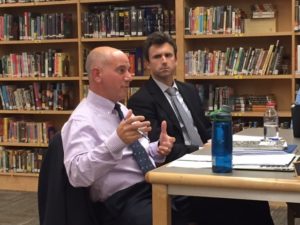
Jeff Dronzek at a School Committee in 2017, with Matt Plain (right).
Turns out, because of the upheaval in recent years in the district’s finance department – loss of a finance director in 2017, a merger with the town’s finance department in 2018, then an un-merging of the two departments in 2019, followed by a short stay for the district’s next finance director (August 2019 to January 2020), along with the departure of longtime Supt. Victor Mercurio, Dronzek is the one with the greatest institutional memory. (Margaret Baker was hired in August to serve as finance director.)
One of the challenges Dronzek noted was that the district lost some credibility over its finances a few years ago and it’s been hard to rebuild trust, especially with all the tumult. But he said finances have been managed well.
“I feel like we did a better job but because of so much change in the finance department, it still was difficult,” he acknowledged.
“I know the finances inside out and rest assured, while there’s always things you can improve, there’s not really random money out there you can find,” Dronzek said of the district budget. Schools aren’t businesses – ”you tend to have costs go up, they don’t go down.”
That’s especially the case in a district like East Greenwich, which is growing.
The School Committee has its own legislative authority but relies on the Town Council for budget money, so that relationship is pivotal.
“I think we created a good working relationship with the Town Council the past couple of years,” Dronzek said.
He did express some disappointment, especially with things stalled because of COVID.
“One of the things I’d hoped to do more of was to create additional revenue through the schools. Some of those things are in place but they’re not fully implemented yet. Others have a long way to go,” he said.
Like Mark, Dronzek is proud of the committee’s decision to hire Alexis Meyer, especially in light of the pandemic. She was named superintendent Feb. 25; less than three weeks later, schools were closed and distance learning was implemented.
“We didn’t know it at the time, but it became a huge benefit that we had Alexis when COVID hit,” he said. It was great to have someone who already knew how to work with the town (Meyer had worked for the schools for decades prior to being named superintendent), he said, and who knew the district so well.
Dronzek said he knows a lot of people don’t understand why things happen the way they happen (for instance, how complaints against teachers are handled). He urges people to go through the proper channels and to attend meetings when they can. “Especially now, with virtual meetings,” he said.
But he gets that sitting on the School Committee gives members a whole different perspective.
“You have the opportunity to see what it’s like on a day to day basis, what goes on to run the schools. It really gives you an insight into the challenges,” Dronzek said. “You don’t know what you don’t know.”
For Dronzek, like Mark, it was really nice to be able to hand his daughter her 8th grade diploma in 2019. But his daughter also bore the brunt of some of the School Committee’s decisions, especially its decision not to approve the annual 8th grade trip to Washington D.C. (A parent ended up organizing a similar trip instead, without school involvement.)
“Sometimes your kids take the brunt of your decisions,” he said. “It shouldn’t be like that.”
Still, he looks back on his term with gratitude.
Like Matt Plain, Dronzek went through the EG school system himself (EGHS Class of 1989).
“It’s a good experience in a lot of ways,” Dronzek said. “It was a privilege to get to give back to the community and to be able to do it for the system I went through.”

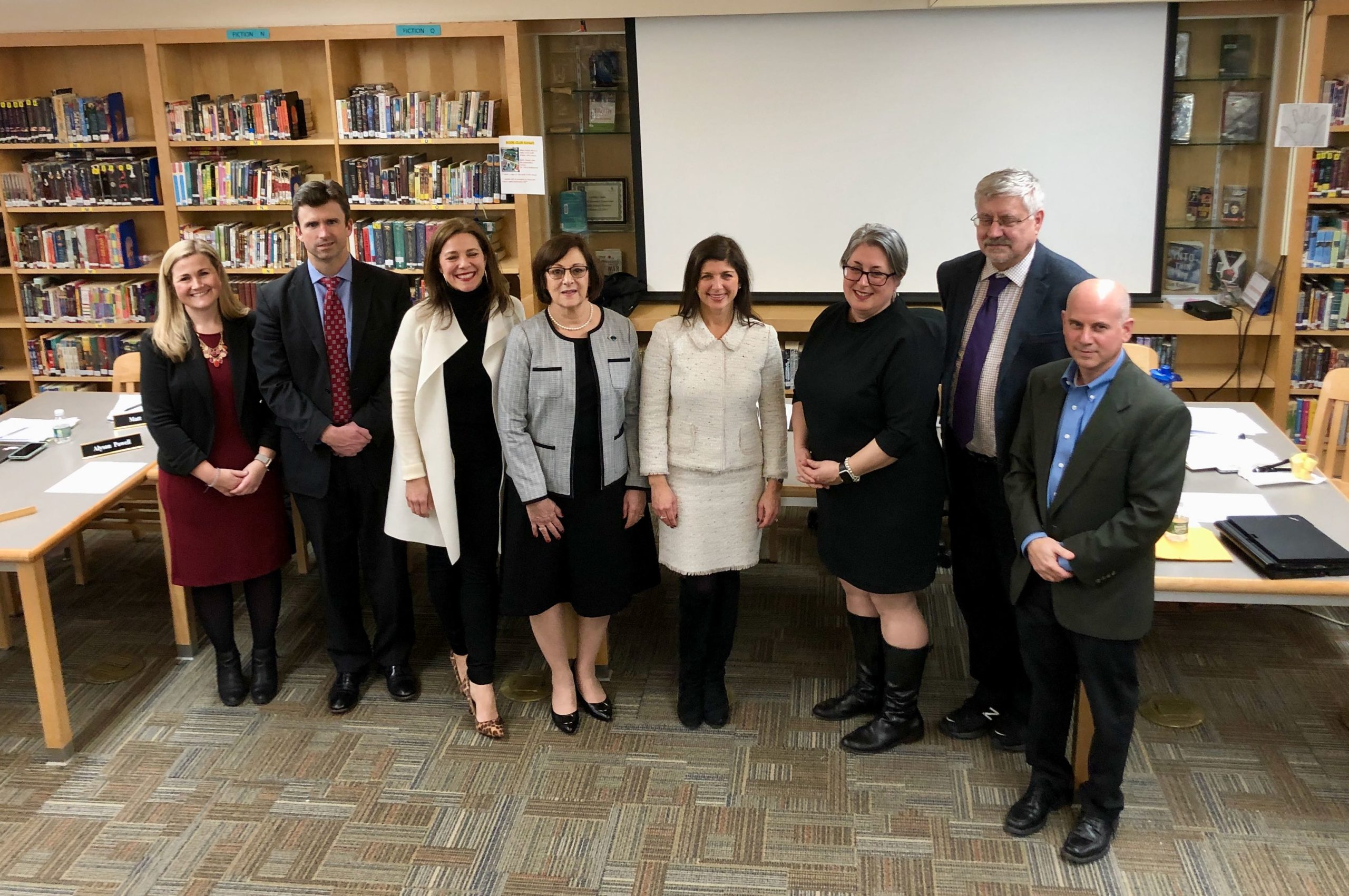



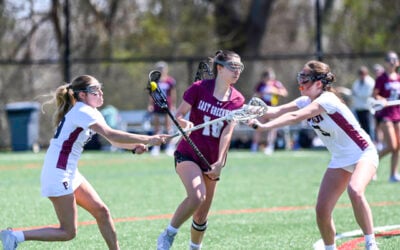
 Subscribe
Subscribe
I had the pleasure of knowing Jeff Dronzek and Matt Plain when they were quite young. It is so gratifying to see how they matured and gave of their time to serve the town as school committeemen. Thank you Jeff and Matt for your efforts and devotion to serving the schools where you were educated.